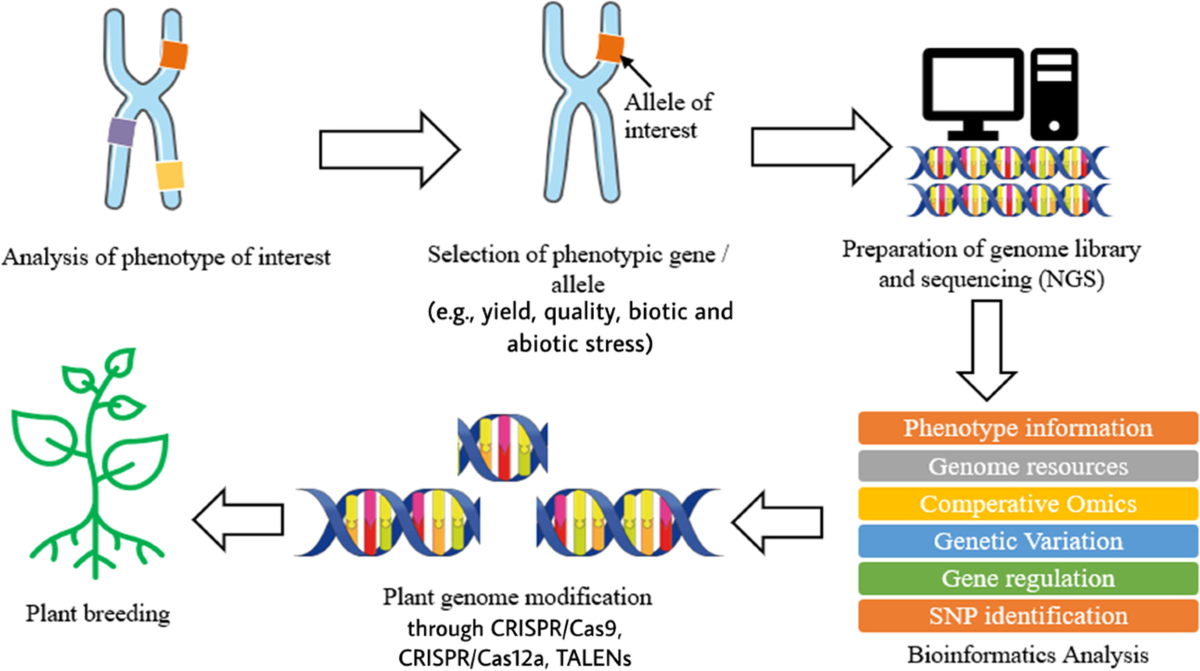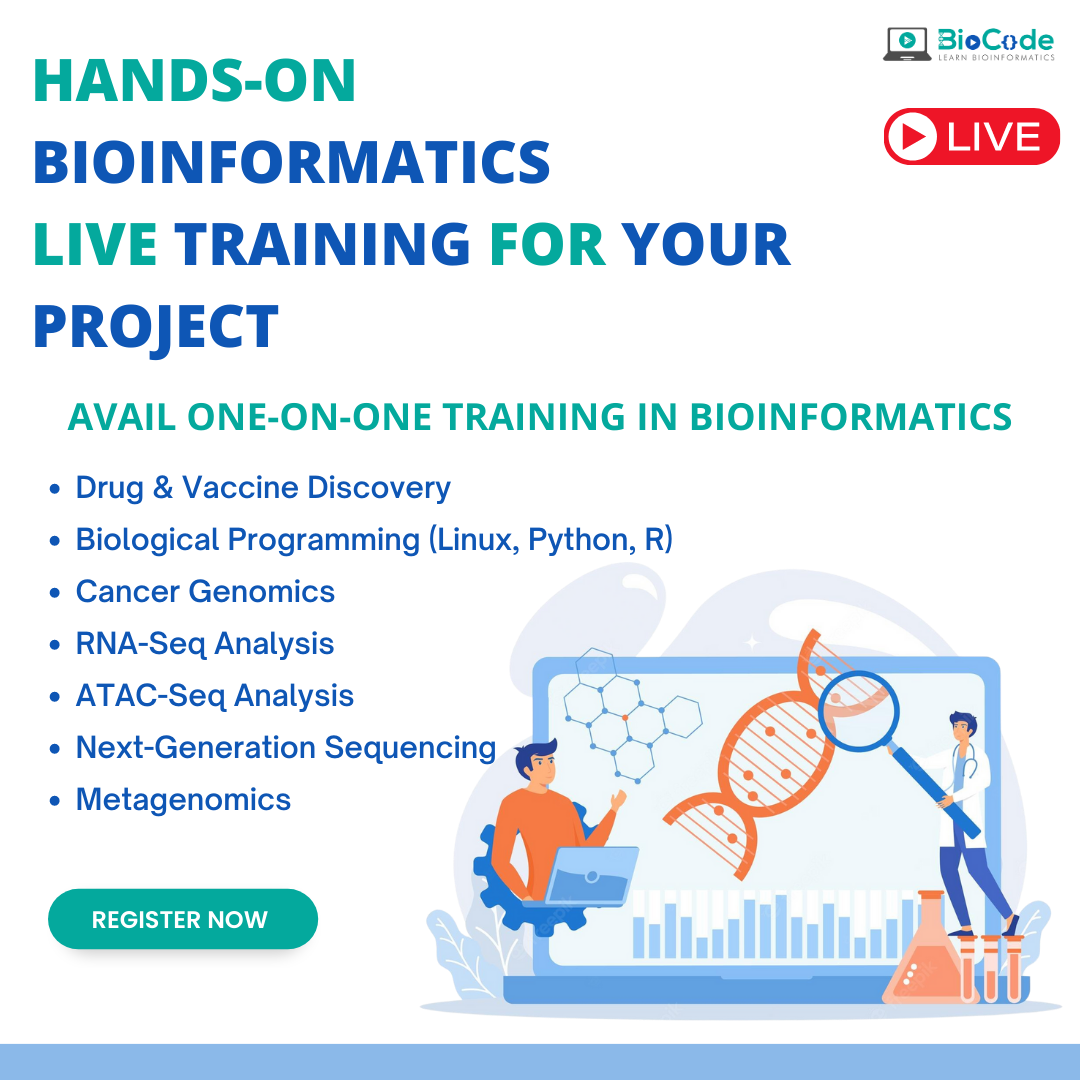How Bioinformatics Tutor can Save You Time, Stress, and Money.
How Bioinformatics Tutor can Save You Time, Stress, and Money.
Blog Article
What Does Bioinformatics Tutor Mean?
Table of ContentsBioinformatics Tutor Can Be Fun For AnyoneSome Ideas on Bioinformatics Tutor You Should KnowSome Known Details About Bioinformatics Tutor Bioinformatics Tutor Fundamentals ExplainedThe Single Strategy To Use For Bioinformatics Tutor
Initial task growth is rather taxing, as it includes mindful preparation of the topic, structuring of deliverables, and consideration of the skills and experience degrees of individuals. Nevertheless, when a project has been plainly defined and implemented, it has the potential to be recycled in future sessions with only small modifications to reflect updates in the area or fit differences in participant backgrounds. This makes project-based finding out a lasting and effective teaching approach over time, especially in swiftly developing disciplines like bioinformatics.To make certain continuity and reproducibility of learning, giving shared laboratory notebooks-- either physical or digital-- is vital. These notebooks act as collaborative logs where pupils can tape-record their progression, code, approaches, and results throughout the training course. Not only do they enhance knowing by urging paperwork and representation, however they additionally work as post-course recommendation materials that participants can consult in future research study or academic jobs.
Advisors play a vital duty in the success of project-based programs. Preferably, mentors must be energetic researchers with a updated and thorough understanding of both the theoretical structures and sensible applications of bioinformatics in their respective techniques. Their capability to bridge complex ideas and real-world application is crucial in helping trainees browse the challenges of interdisciplinary research study. Advisors additionally act as role models and influence trainees to proceed seeking careers in computational biology and related areas.
9 Easy Facts About Bioinformatics Tutor Explained
Another key facet of the understanding procedure is supplying participants the opportunity to offer their job to others, especially to an audience past their prompt job group. Last discussions or mini-conferences enable students to express their searchings for, receive constructive responses, and gain confidence in communicating clinical material. This discussion component is frequently a favorite amongst trainees, as it validates their initiatives and highlights the real-world significance of their work.
The performance of this technique was confirmed by the extremely favorable feedback obtained after the preliminary course was supplied. The success triggered repeat offerings of the same training course style in 2015 and 2016. Each iteration of the program was fine-tuned based upon participant responses and developing best methods in pedagogy. These adjustments ensured that the core goals-- hands-on learning, cooperation, and applied analytic-- remained undamaged while increasing the depth and breadth of subjects covered.
A remarkable visualization that caught individual sentiment was a word cloud produced from feedbacks to the 2014 end-of-course survey. Participants were asked, "What was the very best part of the program?" and their actions were assembled into a visual word cloud. In this depiction, the size of each word suggests just how regularly it was discussed, with words like "hands-on," "partnership," "real-life troubles," "guidance," and "interactive" appearing most plainly. This aesthetic responses reinforced the program's emphasis on experiential discovering and advisor assistance.
The contributions of people such as Rustici, G., Orchard, S., Cowley, A., and Twells, R., together with various other participants of the EBI user-training-working team, contributed in improving the program framework and web content. Their understandings aided form a versatile and inclusive design that might be adapted to different institutional and regional contexts.
The Best Guide To Bioinformatics Tutor

Jones, Rasmussen, and Moffitt (1997) likewise advocated for interdisciplinary discovering via joint job job, noting its capability to simulate expert settings and prepare trainees for future scholastic or industry duties. In a comprehensive testimonial, Thomas (2000) evaluated numerous studies on PBL and wrapped up that pupils not only execute well academically yet likewise create a deeper understanding of the topic and boosted teamwork skills.
In the context of bioinformatics education and learning, innovative techniques like class video games and simulation-based training have likewise been used. For instance, Schneider and Jimenez (2013) introduced making use of interactive video games to teach biological information assimilation, enabling trainees to comprehend intricate concepts with experiential discovering. This kind of gamification matches the hands-on discovering emphasized in project-based programs by presenting a component of enjoyable and competitors, which can further enhance engagement.
Returning to the program gone over right here, the lessons gained from the execution of project-based understanding in a bioinformatics establishing have more comprehensive implications for various other STEM areas. The technique stresses not simply technological effectiveness, yet additionally interaction, cooperation, and important reasoning-- abilities that are significantly valued in both academia and market.
3 Easy Facts About Bioinformatics Tutor Explained
The scalability of the program format additionally makes it a feasible design for other establishments. With proper personalization based on neighborhood requirements, available sources, and participant profiles, the structure can be duplicated or adjusted for usage in other clinical domains. Additionally, the incorporation of structured mentorship and analysis methods helps make certain constant quality and quantifiable knowing end results.

In conclusion, project-based learning in bioinformatics uses a powerful approach to training facility, interdisciplinary material in a manner that is both accessible and intellectually boosting. By highlighting partnership, practical application, and vital inquiry, such efforts not only enhance specific discovering but additionally add to the cultivation of a brand-new generation of proficient and ingenious scientists.
The Main Principles Of Bioinformatics Tutor

An additional secret element visit this website of the learning procedure is giving individuals the chance to present their job to others, specifically to an audience beyond their prompt job group.In the broader instructional literary works, project-based knowing (PBL) has been thoroughly examined and validated as a reliable technique for promoting deep understanding, critical reasoning, and transferable skills. Adderley et al. (1975) emphasized the worth of job methods in greater education, keeping in mind that they promote active discovering and autonomy. Schneider and Jimenez (2013) presented the use of interactive games to show biological information combination, making it possible for trainees to grasp intricate ideas via experiential discovering.
Report this page